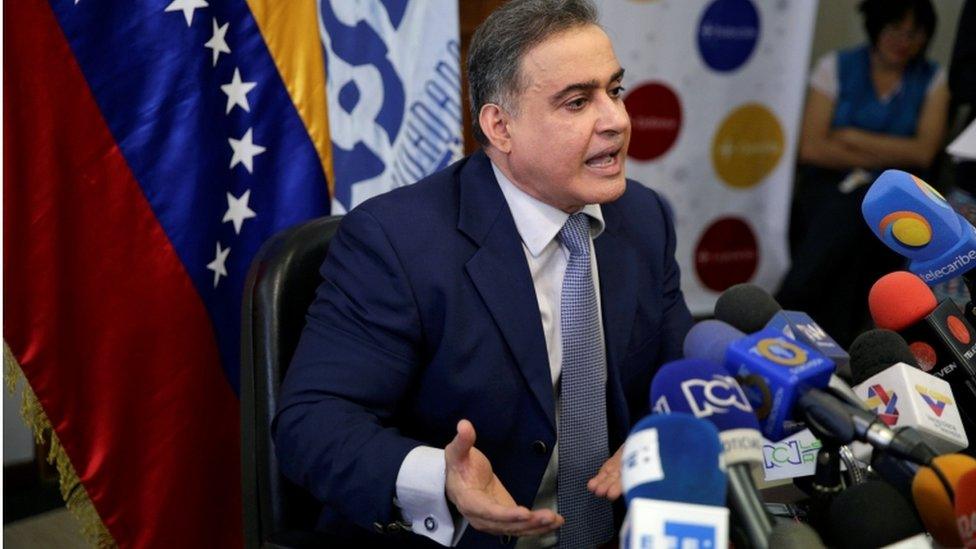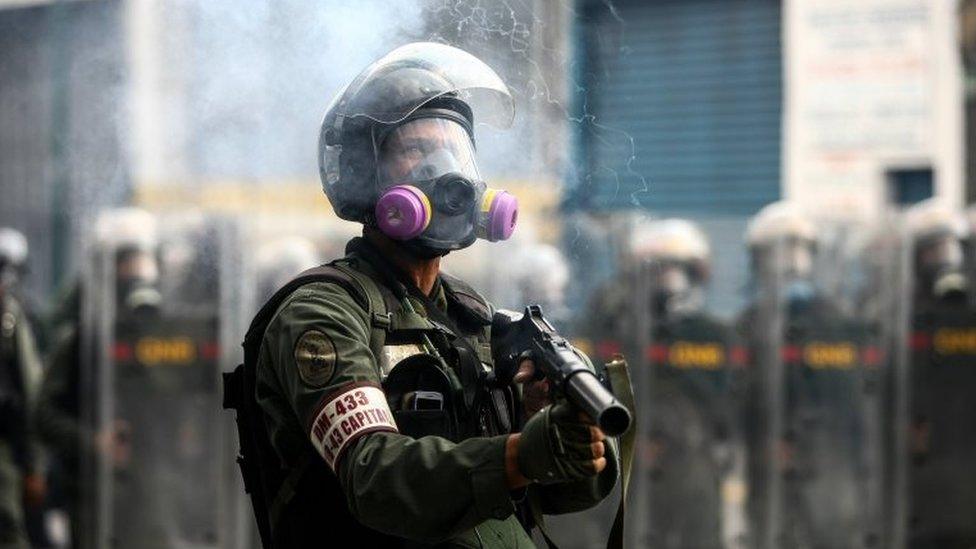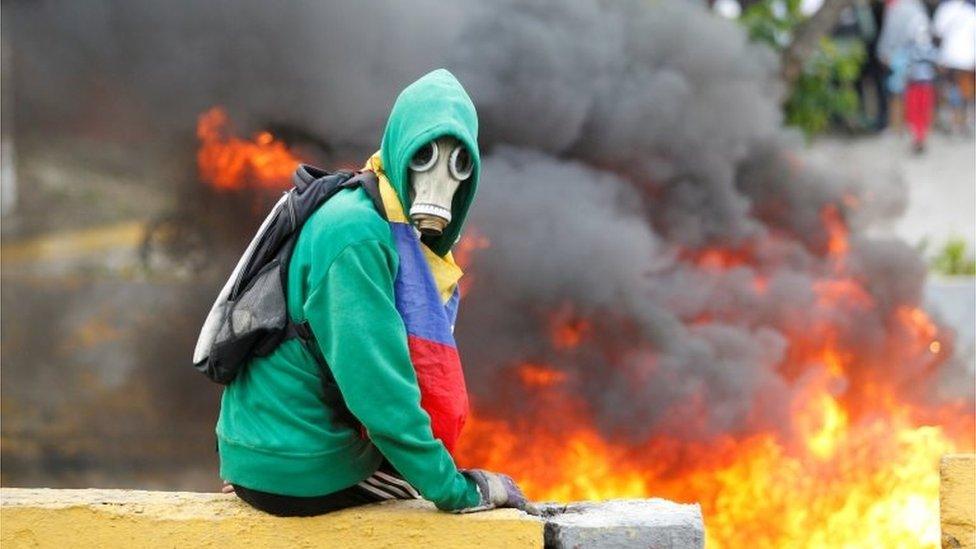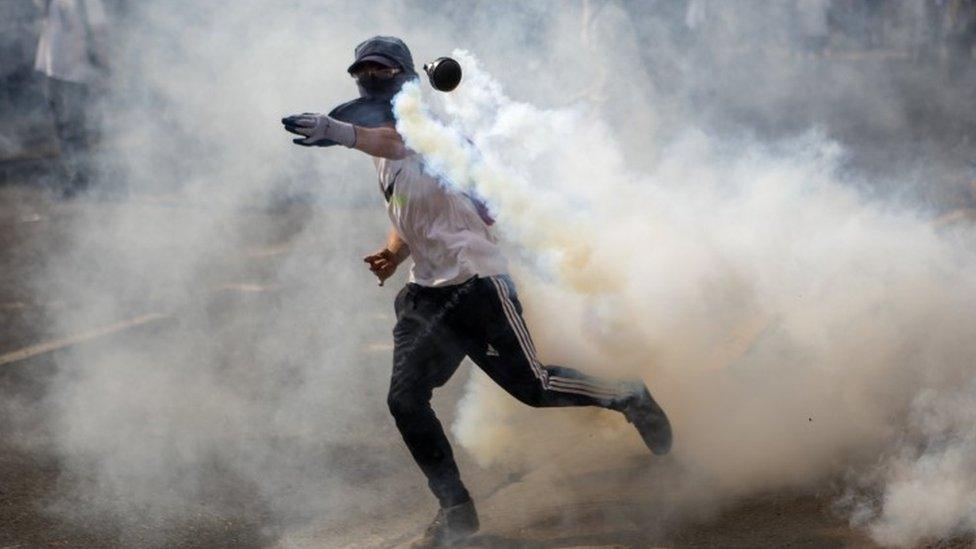Venezuela crisis: Son criticises rights ombudsman father in video
- Published
Yibram Saab said people killed in protests "could have been me"
The son of Venezuela's rights ombudsman, Tarek William Saab, has called on his father to "stop the injustice which has sunk Venezuela".
In a video posted on YouTube, Yibram Saab read out a letter to his father in which he condemned "the brutal repression by the country's security forces" of opposition protests.
He posted the video after a student was killed at an anti-government march.
Almost 30 people have been killed in protest-related violence since 1 April.
Under the Venezuelan constitution, the ombudsman's office probes complaints against the government and is independent of the executive, legislative and judicial powers.
But opposition leaders have accused ombudsman Tarek William Saab of siding with the government of President Maduro.
The video in which his son openly condemns the security forces was widely picked up by opposition websites.
'That could've been me!'
Speaking directly into the camera, Yibram Saab referred to the latest person to be killed in anti-government protests.

The National Assembly elected Tarek William Saab ombudsman in 2014 for a seven-year term
"Juan Pablo Pernalete, a 20-year-old university student, was killed through the terrible and inhumane use of teargas when he was hit [by a teargas canister] in the chest," he said.
"That could've been me!"
Yibram Saab said neither he nor his younger sister had been threatened and that he was speaking out "freely".
"I'm doing this motivated by the principles and values which my dad taught me, which I'm grateful for."
The president's son, Nicolas Maduro Guerra, has criticised the video on Twitter.
He wrote that Yibram Saad, his childhood friend, was being manipulated by the opposition and reminded him that "the enemies of the nation" were still the same.
"Your three minutes of fame could have been something different," wrote Mr Maduro Guerra.
"You could have picked up the phone and spoken to your father, conveying with love your apprehension and listening to him."

Police have used teargas to try to disperse people during the latest wave of protests

Many protesters wear masks to protect themselves
The latest wave of anti-government protest was triggered when the Supreme Court announced on 29 March that it was taking over the powers of the opposition-controlled National Assembly.
While the Supreme Court reversed it just three days later, government critics argued the original ruling had undermined the country's separation of powers.
Opposition lawmakers have since been demanding that the judges responsible for the ruling step down.
They have organised a number of protest marches and tried to reach Tarek William Saab's office to demand that he investigate their complaints against the Supreme Court.
They are also calling for presidential elections scheduled for late 2018 to be brought forward as they blame socialist President Nicolas Maduro for the political and economic crisis engulfing Venezuela.
On Wednesday, the regional body Organization of American States (OAS) voted in favour of convening a meeting of foreign minister to consider the situation in Venezuela.
Angered by what it called the OAS's meddling, Venezuela announced it would start the process of withdrawing from the organisation on Thursday.
- Published27 April 2017
